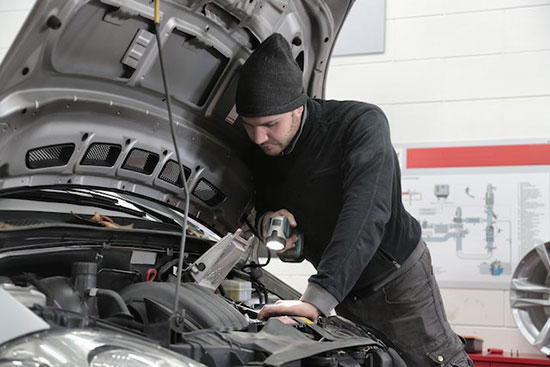When it comes to your vehicle’s well-being, early detection of issues is key. Understanding what kind of repair your car needs can be a pivotal skill for any driver. From deciphering cryptic warning lights to tuning in to the subtlest of engine murmurs, there are numerous clues your car provides.
Knowing how to pinpoint these necessary repairs can save time and money and potentially prevent more serious problems down the road. Here is an outline of five straightforward methods to help you identify exactly what your car requires:
Contents
Listen for Unusual Noises
Your car communicates with you by making noises when something is wrong. It’s vital to pay attention to these sounds. They’re like early warnings of possible problems. For example, a high-pitched squeal when you brake means your brake pads might be worn and need replacing.
Detecting a grinding noise when you shift gears could mean transmission trouble, possibly due to low fluid or worn parts. A consistent knocking sound from the engine might indicate a severe internal issue that needs immediate attention.
Taking care of your car and being aware of these noises can help it last longer and potentially prevent accidents.
Observe Fluid Levels and Leaks
Regularly checking vital fluids like oil, transmission, brake, and coolant keeps your car running smoothly. With a qualified auto service provider, they may notice any leaks and find where they are coming from.
They can also notice changes in the colors and textures of these fluids and fix the issue. This proactive maintenance extends your car’s lifespan and stops potential major problems from developing later on.
Monitor Performance
Paying close attention to how your car behaves during regular drives is a smart way to spot potential problems. Even subtle changes can be early signs of underlying issues. If you notice things like a loss of power, difficulty starting, or a drop in fuel efficiency, it’s a sign your car needs immediate attention.
These signs indicate that specific parts may need repairs or replacements. Taking care of these issues promptly improves your driving experience. It prevents minor problems from becoming bigger and costlier down the line.
Check The Warning Lights
Modern cars have a variety of dashboard warning lights that act like a built-in communication system. They’re crucial for alerting drivers to potential issues like low oil pressure, engine overheating, and problems with the ABS. Knowing what each light means is important for driving safely.
It helps you understand what your car needs to run well and address any issues before they become serious. If you are not sure about any warning light, it’s a good idea to contact your car’s manufacturer or consult a car expert.
You can also find online resources that explain the different warning lights, giving you the knowledge to handle potential problems effectively.
Perform Basic Diagnostics

You must conduct basic car diagnostics to understand your car’s overall health. Investing in an OBD-II scanner or visiting an auto parts store that provides complimentary diagnostic scanning services is one of your best actions.
These tools can find error codes on your car’s computer. These codes give exact clues about what’s wrong with your vehicle. You can make informed decisions about needed repairs when you understand these codes.
It is advisable to seek professional help when it comes to motor vehicle problems. This is because of the severe danger you pose to yourself and others on the road when you have a vehicle not performing well.
If you can do it yourself, ensure you regularly check your car’s systems, engine, and tires to ensure they are fully functional. With the above tips, you can ensure your vehicle serves you the longest.
